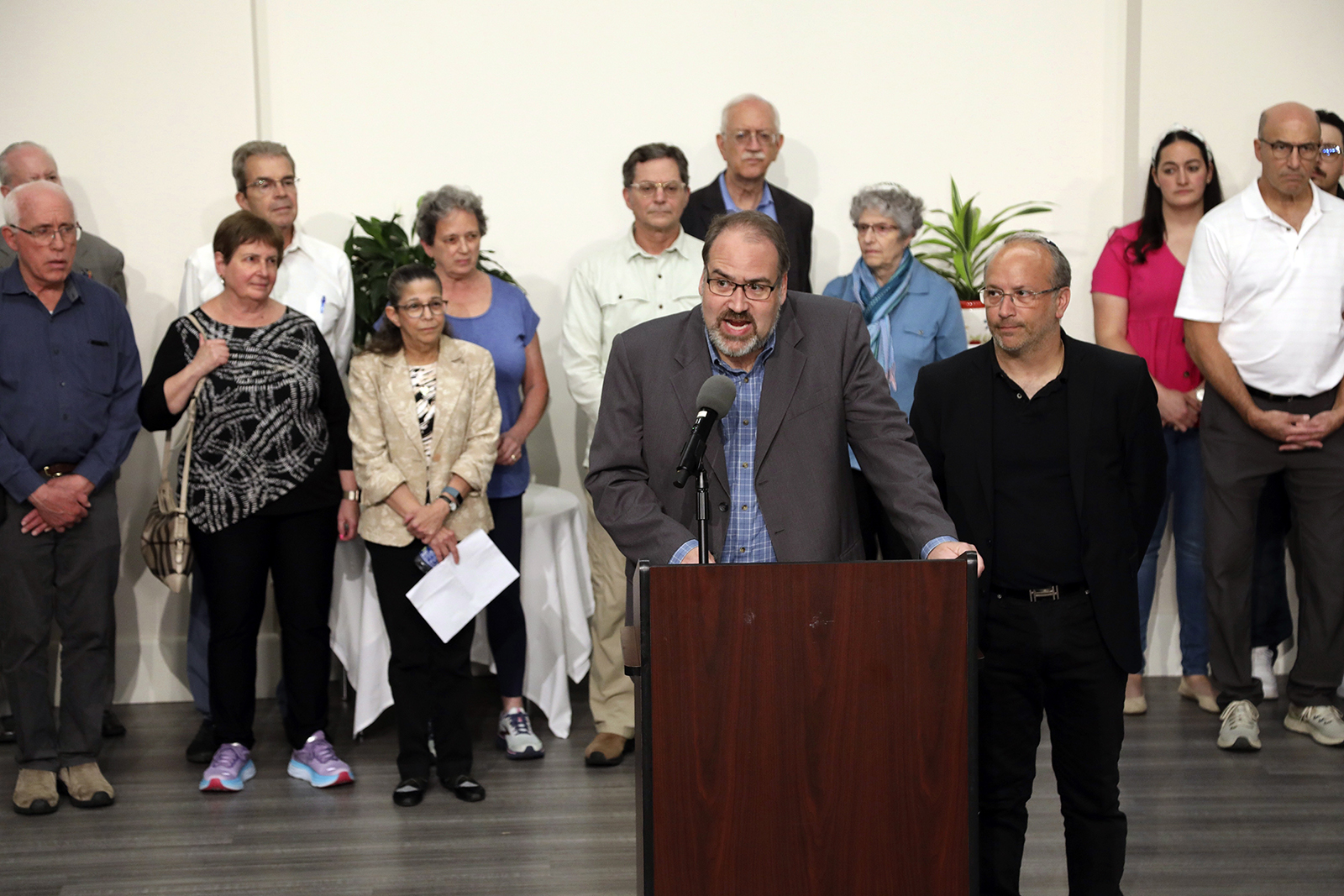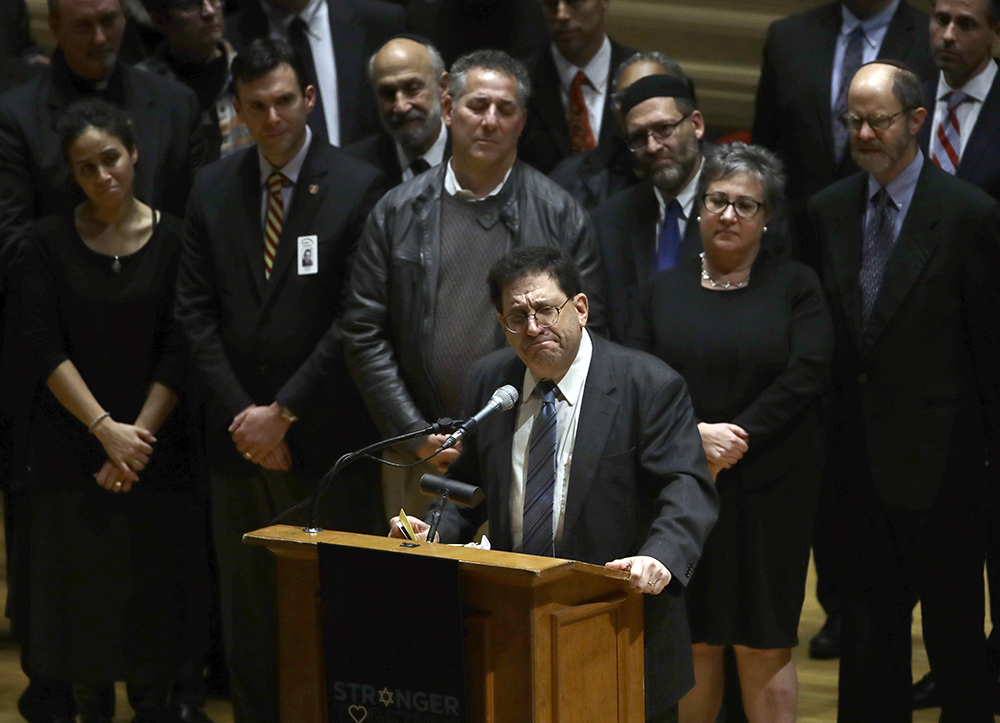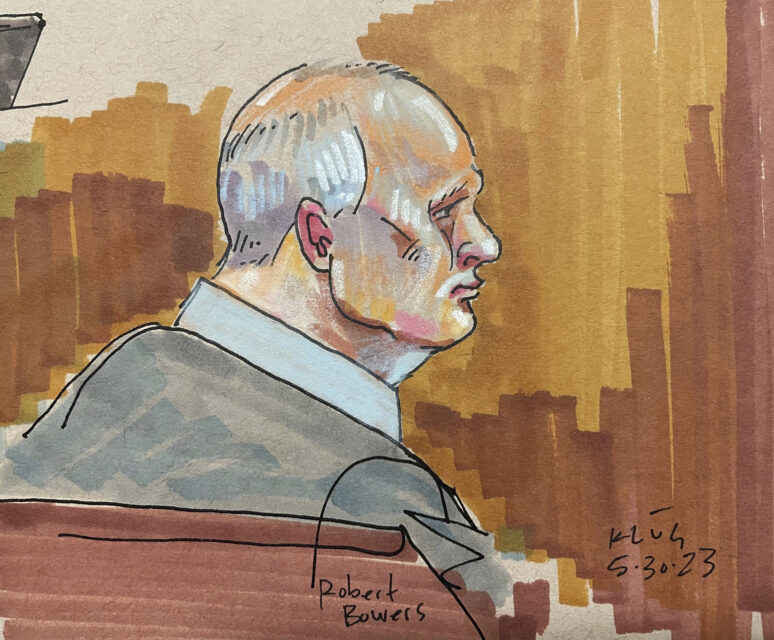(RNS) — On Thursday (Aug. 3), one day after a jury unanimously decided that Robert Bowers should face the death penalty for gunning down 11 people in a Pittsburgh synagogue, a U.S. district judge formally sentenced Bowers to die for the worst antisemitic attack in American history.
But it will take years and likely decades for the sentence to be carried out, if it happens at all.
Bowers will join 41 others on federal death row. Sixteen people have been executed by the federal government since Congress reinstated capital punishment in 1988. Bowers’ defense team is now expected to appeal the verdict to the 3rd Circuit Court of Appeals. He may then have other appeals available to him, up to and including the Supreme Court.
RELATED: Pittsburgh synagogue shooter will be sentenced to death, jury finds
Meanwhile, in 2021, Attorney General Merrick Garland issued a moratorium on federal executions, officially to allow the the Justice Department to review policies and procedures surrounding the practice.
Bowers, 50, will likely live for the foreseeable future — most likely in Terre Haute, Indiana, where most federal death row prisoners are housed.
Those realities may matter little to the survivors or the families of victims of the 2018 Tree of Life synagogue shooting. Seven of the nine families of the victims (the 11 victims included two brothers and a married couple) strongly advocated for the death penalty.
“Capital punishment exists for the worst crimes and it really doesn’t get much worse than this,” said Howard Fienberg, whose mother, Joyce, was among those killed by Bowers. “You’re dealing in this case with a defendant that has never had the slightest bit of remorse. He had every opportunity to reconsider and to regret and, and to give up, and he didn’t. That’s what the death penalty is for.”

Howard Fienberg speaks to the media surrounded by victims and families of victims following the sentencing of Robert Bowers at the Jewish Community Center in Pittsburgh, Wednesday, Aug 2, 2023. Bowers will face the death penalty for killing 11 people at the Tree of Life synagogue in Pittsburgh in 2018. (AP Photo/Rebecca Droke)
Others also made clear that the country’s worst act of antisemitism deserves the death penalty if only for the message it conveys: that hatred of Jews should never be tolerated.
“Antisemitism is rising, including the spread and promotion of hate on social media, in public, and by celebrities and politicians,” said survivor Martin Gaynor. “This trial is also important in sending a signal in the strongest possible terms that antisemitism and hate have no place in our hearts, no place in our communities, no place in our country, and will not be tolerated. ”
On Oct. 27, 2018, Bowers drove to Tree of Life synagogue, in Pittsburgh’s Squirrel Hill neighborhood, the heart of the city’s Jewish community, where three congregations were holding Shabbat services. After shooting 11 of the gathered worshippers, he reportedly told law enforcement that “Jews are the children of Satan” and told a SWAT officer that “all these Jews needed to die.”
In July, Bowers was found guilty of all 63 charges, including 22 capital offenses. A jury voted unanimously for the death penalty on Wednesday.
The number of death sentences in the U.S. has plummeted since 2000, with most death sentences imposed by the states. Federal cases, such as the Pittsburgh one, are even rarer.
Only 16 people have been executed by the federal government since Congress reinstated the punishment. Of those, 13 were executed in the final year of the Trump administration. Between 2003 and 2020 there were no federal executions.
Bowers is the first person to be sentenced to death in a federal case since Biden became president. In March, a New York jury could not arrive at a unanimous decision on the death penalty for Sayfullo Saipov, who was convicted of killing eight people on a New York City bike path in 2017. Saipov received eight consecutive life sentences.
“In the majority of cases in which (federal prosecutors) do seek a death sentence, the result is a life sentence,” said Robin Maher, executive director of the Death Penalty Information Center.
The Department of Justice recently decided against seeking a death sentence for Patrick Crusius, who pled guilty of killing 23 people in an El Paso, Texas, Walmart in August 2019.
That reluctance to mete out the ultimate punishment reflects divisions among the nation’s religious groups, too. A 2014 PRRI survey showed that most religious groups are split on the death penalty. When asked which punishment they prefer for people convicted of murder, slightly more religious Americans (48%) said they favored life in prison with no chance of parole; 44% said they favored the death penalty.
American Jews were among the least likely to support the death penalty in that survey, with 57% saying they preferred life in prison.
That was before the Pittsburgh shooting.

Rabbi Jonathan Perlman speaks at a community gathering in Soldiers & Sailors Memorial Hall & Museum in the aftermath of the deadly shooting at the Tree of Life Synagogue in Pittsburgh, on Oct. 28, 2018. (AP Photo/Matt Rourke)
Members of two of the three congregations that worshipped at the Tree of Life and lost members there in the shooting said they opposed the death penalty. Jonathan Perlman, the rabbi of New Light Congregation, was especially vocal in opposition to the penalty.
Those who favored the death penalty won the day.
Michael Zoosman, co-founder of L’chaim! Jews Against the Death Penalty, said he understood the victim families’ support for the death penalty in this case.
“I think it’s fair to say that there are many more people opposed to the death penalty in principle, but not necessarily for Robert Bowers,” said Zoosman, an ordained cantor who works as a chaplain at a federal hospital in Maryland and has previously worked as a death row chaplain.
Though he opposes the death penalty, he added: “If it were me who lost a family member — a child, a parent, a brother, a loved one — it might be me as well advocating for death for the perpetrator.”
RELATED: After synagogue gunman’s death sentence, Pittsburgh’s Jews feel relief, resilience — and gratitude





